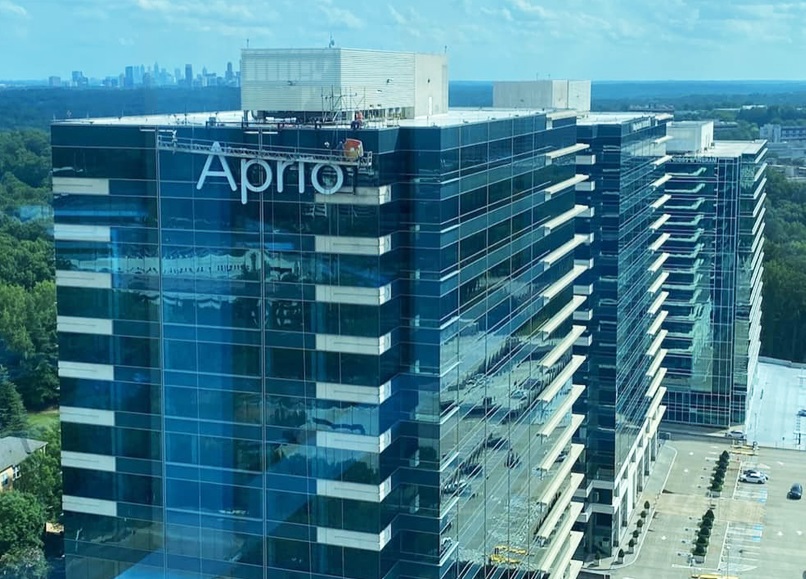Susan K. Livio, Jelani Gibson, Brent Johnson
nj.com
(TNS)
Calling it a “big day for New Jersey,” Gov. Phil Murphy on Friday night signed a new $56.6 billion state budget that cleared both houses of the Democratic-controlled state Legislature hours earlier.
As in recent years, the budget — which determines how state government will spend taxpayer money in the fiscal year that begins Monday — sets a record for state spending. It’s bolstered by a new tax hike on large companies, includes some new funding for property-tax relief, and features big money for public schools and pensions.
The plan also calls for spending $2.1 billion more than it collects in revenue from taxes and fees at a time when the state faces uncertain financial prospects.
“We’re gonna make a number of important investments into the future of our state, our economy and most importantly, our families,” Murphy, a Democrat, said during a Friday evening press conference surrounded by top Democratic lawmakers and state Treasurer Elizabeth Muoio at the Statehouse in Trenton.
Murphy said about half of the spending plan — $27 billion — “will provide property-tax relief,” whether directly or indirectly.
“This is a budget that will put the needs of our families ahead of special interests,” he said.
The most noteworthy addition is a five-year tax increase on the state’s wealthiest businesses designed to ultimately provide a dedicated funding source for beleaguered NJ Transit — a move praised by progressive advocates but blasted by Republicans and business leaders.
Murphy’s signature caps five months of budget negotiations, highlighted by what has become a typically hectic final week in June as leaders rush to install a plan by the July 1 deadline, the start of the new fiscal year. If a budget isn’t in place by that date, the state government could shut down.
The governor unveiled a proposed budget in February, followed by public hearings, and then negotiations with fellow Democrats who lead the Legislature to cut a deal on a final version (A4700).
The budget is $758 million larger than Murphy’s original proposal, thanks in large part to spending lawmakers added on at the last minute for various projects. The plan is also $2.3 billion more than the current budget Murphy signed last June.
Republicans, the minority party in the Legislature, took aim at Democrats for another budget that relies on deficit spending and drawing money from the budget’s $6.16 billion surplus fund. Some of the partisan criticism got personal.
“If you believe we should run a $2 billion deficit and raid the surplus to funnel millions of dollars to projects in towns represented by (state Assembly Speaker Craig Coughlin’s) law firm, this is your budget,” Assemblyman Brian Bergen, R-Morris, said before the vote.
“I know three-quarters of you have a driver who drove you here today, and maybe a job or two,” Bergen continued. “If you try thinking like a working-class person for just one second, you would realize the budget is more harmful than helpful. Please do me a favor and be normal for one second and vote no.”
Assemblywoman Rosy Bagolie, D-Essex, fired back.
“When you say things like ‘be normal, think of the working poor,’ I would ask, have you ever been hungry? Because I have,” said Bagolie, a school administrator in East Newark.
“When you talk about whether this budget will help families, yes, it will help families that maybe you are not thinking of,” she said. “Those that are poor, those who are hungry, those that are lacking housing. So when you stand here today and ask us today to be normal, and when you talk about us on this side of the aisle, as if we the ones who don’t understand what it’s like to be poor and hungry, I will tell you, you are 100% wrong.”
Murphy defended the budget from those worried about the spending.
”We’re still in a fragile, post-COVID phase,” he said. “We are doing this deliberately. We want to make sure we jump-start and the economy gets back on its feet as fast as it can. We are also making up for decades of bad behavior in this state.”
That, he said, includes underfunded pensions and schools.
Coughlin, D-Middlesex, added: “Yes, we spend more than we took in, but the truth of the matter is: We have the reserve, the surplus to be able to cover that.”
Budget committees in both the state Senate and Assembly approved the bill in evening votes Wednesday, hours after formally introducing it, drawing now-annual criticism that the process is rushed and not transparent enough.
The full Assembly approved the bill 55-22 and the Senate 27-13 on Friday. Both votes were largely along party lines, though a handful of Republicans voted yes.
Murphy called a press conference shortly thereafter to say he would approve the plan and announced just before midnight that he signed it, two days before the deadline.
TRANSIT TAX
The budget contains a 2.5% “corporate transit fee” on the 600 companies in New Jersey that make at least $10 million. The Legislature and governor also gave final approval to that Friday.
The tax (A4704), which is retroactive to Jan. 1, 2024, will net the agency $1 billion a year before it ends in December 2028, although NJ Transit will not start receiving the money until next summer, when the state’s bus and rail agency, faces a $766 million financial shortfall. The New Jersey Chamber of Commerce and the New Jersey Business and Industry Association testified against the measure, warning it will give the state the nation’s highest business taxes while giving the most successful, job-creating companies reason to leave the state.
“It’s a hard truth, but we’ll say it: We believe that some policymakers have some work to do to make our job creators feel they’re more than a bottomless trough of revenue,” NJBIA President Michele Siekerka said after the vote. “And they should know that we will always tirelessly fight for those employers and their right to a business climate that breeds success.
“But it shouldn’t have to be a fight,” she added. “We respectfully ask our leaders, once and for all, to seek more pro-business policies, rather than continually seeking to be an extreme national outlier in our taxes, costs and regulations.”
Chamber of Commerce President Tom Bracken said: “The budget battle is over. We now have to live with the consequences.”
Meanwhile, NJ Transit riders are set to see a 15% fare hike starting next month. U.S. Rep. Mikie Sherrill, D-11th Dist., called on NJ Transit to pause the increase, increase, while state Assemblywoman Nancy Munoz, R-Union, unsuccessfully sought a budget amendment that would delay the rate hike during the five years rich companies are taxed. The train lines have been plagued with heat-related delays, angering tens of thousands of commuters.
Neia Morsy, director of advocacy group Make the Road New Jersey, said the new budget “makes large multinational corporations pay a modest tax to fund the bus and train service that New Jerseyans depend on, especially immigrant communities, low-income residents, and special populations such as seniors and children.”
Assemblyman Christopher DePhillips, R-Bergen, one of several Republicans who spoke against the bill, said NJ Transit had plenty of money — it just needed to manage it better.
“NJ Transit is literally and figuratively off the rails,” he said.
SCHOOL AND PENSION FUNDING
The budget provides roughly $7 billion for the public-worker pension fund, which supports the retirement of about 800,000 active and retired state and local government workers. This is the fourth straight year there has been a full payment to the long-underfunded system.
Schools will receive roughly $12 billion, representing the first time a full payment has been made based on the state’s school funding formula, after a seven-year ramp up. Many school districts remain unhappy, including some that have cut jobs and services. Of the 593 school districts in New Jersey, 140 will see their aid decline.
Munoz lamented how many districts “are being forced to raise property taxes,” some more than 9%.
”Where is all that money going? This is the people’s money, we must be better stewards of the people’ money,” she said of the overall budget.
PROPERTY-TAX RELIEF
There’s more than $2 billion in the budget to cover a third year of funding for the ANCHOR tax relief program, which gives 1.3 million homeowners up to $1,750 and more than 700,000 renters up to $700 to help offset property taxes.
There is also $220 million in ramp-up funding for the Stay NJ property tax cut for New Jersey seniors who make less than $500,000 a year, scheduled to take effect in fiscal year 2026. Questions remain about whether there will be enough funding for it to launch in next year’s budget.
COMMUNITY COLLEGES
Responding to an outcry from county college administrators, legislators dedicated $20 million in additional funds for New Jersey’s 18 community colleges. Murphy cut $20 million from the current’s year’s funding level of $149.1 million. The New Jersey Council of County Colleges said the money was needed to offset increases in health care costs.
Sen. Joseph Cryan, D-Union, said in a statement that he fought to add the $20 million for community colleges, as well as $70 million more for public universities.
“These are some of the best investments the state can make,” he said, noting community colleges educate four out of 10 college students in New Jersey.
NURSING HOMES
Nursing home operators are set to receive $586 million — an additional $37.2 million more than the current year — from the Medicaid program. Industry lobbyists asked for $103 million more in a letter with a dire warning that facilities will close if they did to receive more aid. The Legislature added $30 million to the $7.2 million included in Murphy’s original budget proposal. Nursing home operators also asked to temporarily suspend a quality incentive payment program that rewards nursing homes that maintain adequate staffing and demonstrate other improvements and share bonuses with all facilities, but the program was kept intact.
PORK-BARREL SPENDING, ALSO KNOWN AS ‘CHRISTMAS IN JUNE’
It’s tradition in Trenton that the party in charge allocates hundreds of millions of dollars for projects in their communities back home. Republicans get some, too, but far less. After Murphy zeroed-out nearly all of the current year’s added spending, exceeding $1 billion, the Legislature tacked on nearly $700 million spread across hundreds of add-ons this year.
The money is often derided by critics as pork-barrel spending, or “Christmas tree” items because it’s as if the holiday is arriving in June. The sponsors often aren’t revealed until weeks after the budget passes.
Some includes funding for baseball complexes, school building construction, a crisis center, and a soup kitchen. Democrats note this year they also secured $380 million in cuts.
Republicans, though, broke out the sarcasm and questioned many of the line items.
“This is my first time at the rodeo, and boy, did I get an education,” said first-term Assemblywoman Dawn Fantasia, R-Sussex.
There’s $4 million for recreational improvements in the city of Plainfield — “one municipality, $4 million,” she said. “Vernon is the largest municipality in Sussex County. it received $75,000.”
Senate President Nick Scutari, D-Union, praised the final budget.
”I hope it’s as good next year as it is this year,” he said. “But we’ll take it one step at a time.”
Thank you for relying on us to provide the local news you can trust. Please consider supporting NJ.com with a voluntary subscription.
Susan K. Livio may be reached at slivio@njadvancemedia.com. Follow her on Twitter @SusanKLivio.
Jelani Gibson may be reached at jgibson@njadvancemedia.com. Follow him on X at @jelanigibson1.
Brent Johnson may be reached at bjohnson@njadvancemedia.com. Follow him on X at @johnsb01.
©2024 Advance Local Media LLC. Visit nj.com. Distributed by Tribune Content Agency, LLC.
Thanks for reading CPA Practice Advisor!
Subscribe Already registered? Log In
Need more information? Read the FAQs



